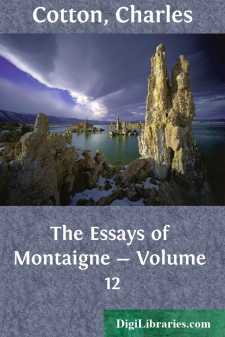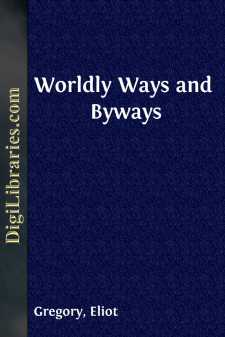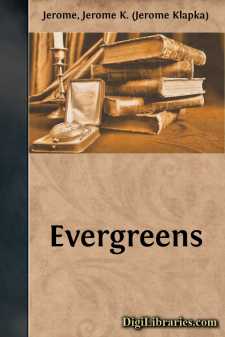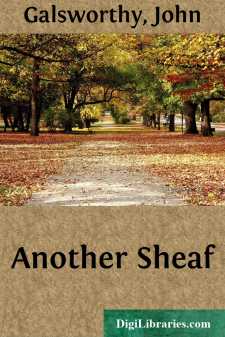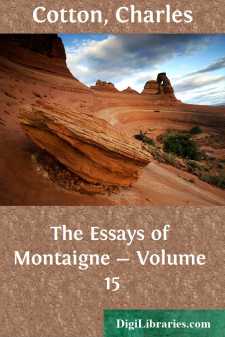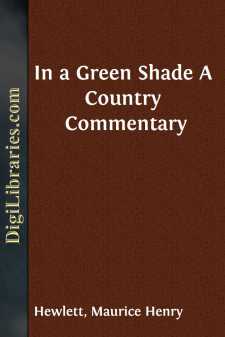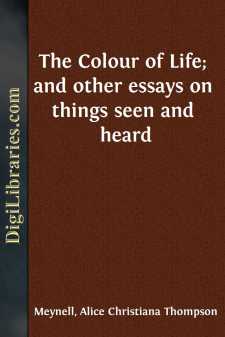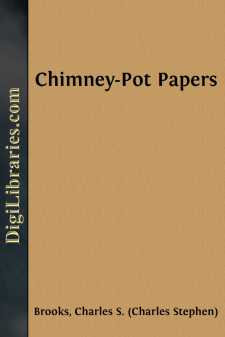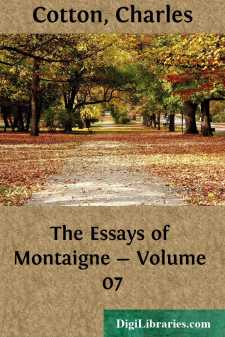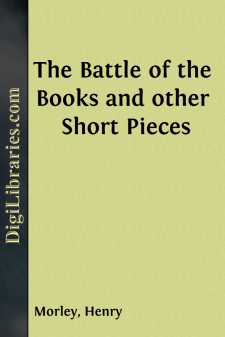Literary Collections
- American 84
- Ancient, Classical & Medieval 14
- Asian 1
- Australian & Oceanian 1
- Canadian 55
- Continental European 121
- English, Irish, Scottish, Welsh 179
- Essays
- General 24
- Letters 46
- Middle Eastern 1
Essays Books
Sort by:
by:
Charles Cotton
Well, but some one will say to me, this design of making a man's self the subject of his writing, were indeed excusable in rare and famous men, who by their reputation had given others a curiosity to be fully informed of them. It is most true, I confess and know very well, that a mechanic will scarce lift his eyes from his work to look at an ordinary man, whereas a man will forsake his business...
more...
by:
Eliot Gregory
There existed formerly, in diplomatic circles, a curious custom, since fallen into disuse, entitled the Pêle Mêle, contrived doubtless by some distracted Master of Ceremonies to quell the endless jealousies and quarrels for precedence between courtiers and diplomatists of contending pretensions. Under this rule no rank was recognized, each person being allowed at banquet, fête, or other public...
more...
They look so dull and dowdy in the spring weather, when the snow drops and the crocuses are putting on their dainty frocks of white and mauve and yellow, and the baby-buds from every branch are peeping with bright eyes out on the world, and stretching forth soft little leaves toward the coming gladness of their lives. They stand apart, so cold and hard amid the stirring hope and joy that are throbbing...
more...
by:
John Galsworthy
THE ROAD The road stretched in a pale, straight streak, narrowing to a mere thread at the limit of vision—the only living thing in the wild darkness. All was very still. It had been raining; the wet heather and the pines gave forth scent, and little gusty shivers shook the dripping birch trees. In the pools of sky, between broken clouds, a few stars shone, and half of a thin moon was seen from time...
more...
by:
Charles Cotton
By how much profitable thoughts are more full and solid, by so much are they also more cumbersome and heavy: vice, death, poverty, diseases, are grave and grievous subjects. A man should have his soul instructed in the means to sustain and to contend with evils, and in the rules of living and believing well: and often rouse it up, and exercise it in this noble study; but in an ordinary soul it must be...
more...
IN A GREEN SHADE ROUND ABOUT A PREFACE The title has become equivocal, since there are more green shades in employment now than were dreamed of by Andrew Marvell. Science is a great maker of homophones, without respect for the poets. There is, for instance, the demilune of lined buckram borne by the weak-eyed on their foreheads, the phylactery of the have-beens—I lay myself open to be believed a...
more...
THE COLOUR OF LIFE Red has been praised for its nobility as the colour of life. But the true colour of life is not red. Red is the colour of violence, or of life broken open, edited, and published. Or if red is indeed the colour of life, it is so only on condition that it is not seen. Once fully visible, red is the colour of life violated, and in the act of betrayal and of waste. Red is the...
more...
The Chimney-Pots. y windows look across the roofs of the crowded city and my thoughts often take their suggestion from the life that is manifest at my neighbors' windows and on these roofs. Across the way, one story lower than our own, there dwells "with his subsidiary parents" a little lad who has been ill for several weeks. After his household is up and dressed I regularly discover him...
more...
by:
Charles Cotton
A CONSIDERATION UPON CICERO One word more by way of comparison betwixt these two. There are to be gathered out of the writings of Cicero and the younger Pliny (but little, in my opinion, resembling his uncle in his humours) infinite testimonies of a beyond measure ambitious nature; and amongst others, this for one, that they both, in the sight of all the world, solicit the historians of their time not...
more...
by:
Henry Morley
Jonathan Swift was born in 1667, on the 30th of November. His father was a Jonathan Swift, sixth of the ten sons of the Rev. Thomas Swift, vicar of Goodrich, near Ross, in Herefordshire, who had married Elizabeth Dryden, niece to the poet Dryden’s grandfather. Jonathan Swift married, at Leicester, Abigail Erick, or Herrick, who was of the family that had given to England Robert Herrick, the...
more...


